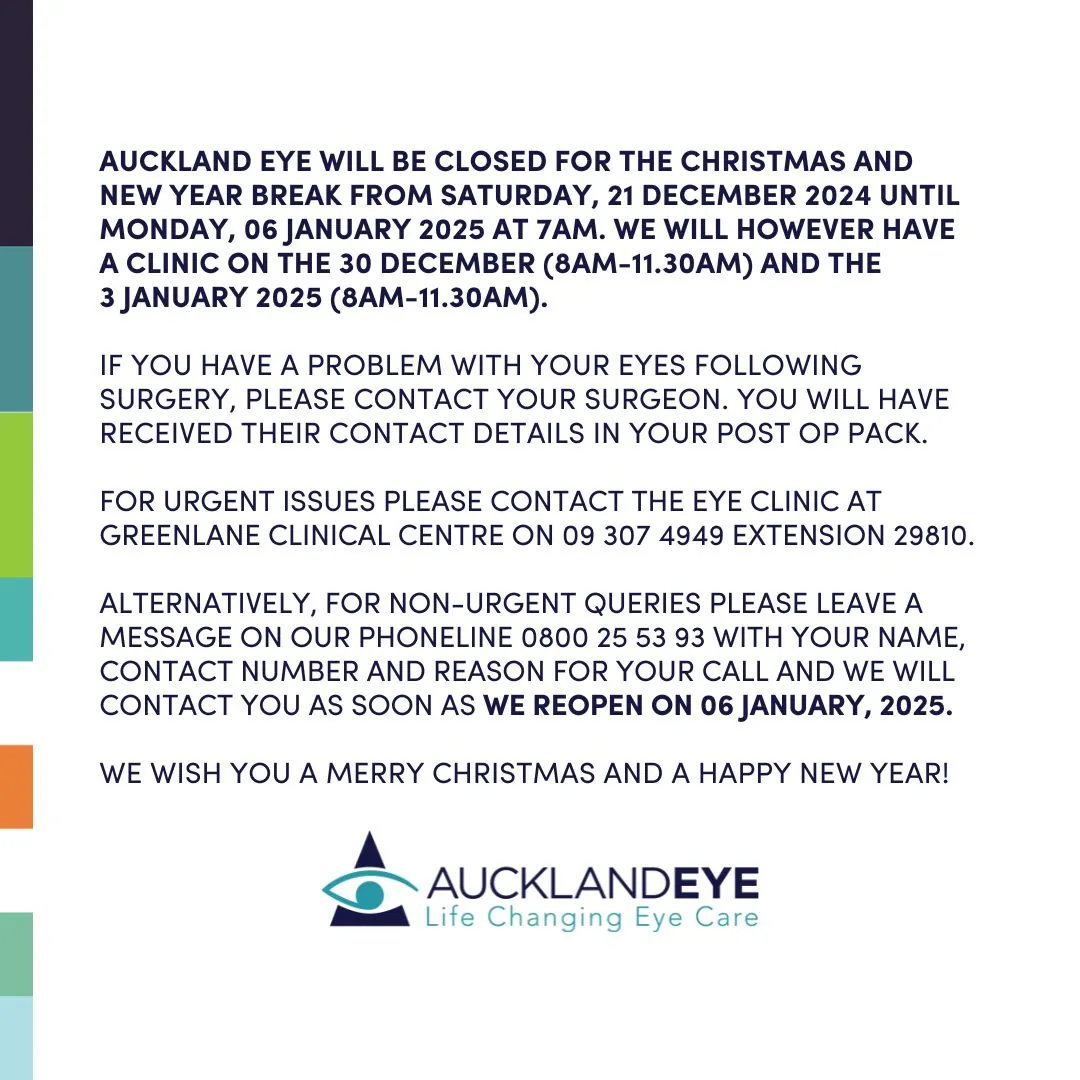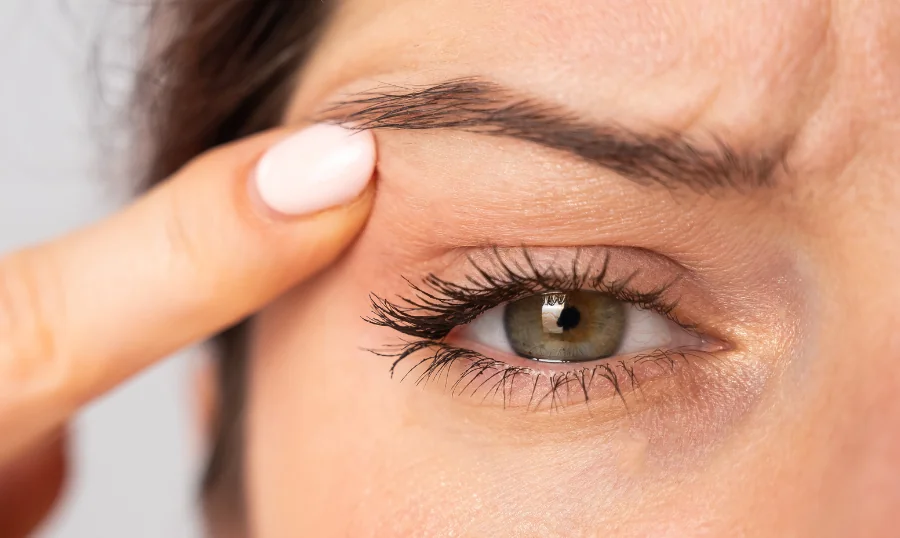Auckland Eye Christmas Period
Auckland Eye will be closed for the Christmas and New Year Break from Saturday, 21 December 2024 until Monday, 06 January 2025 at 7am.

We know that depression can be triggered by any number of things – stress, the death of a loved one, redundancy or a divorce. But what you probably aren’t expecting to read (especially if you’re a middle-aged woman) is that declining eyesight could increase women’s risk of depression later in life too.
Just like our bodies, our eyes age over time. Some changes are hereditary, others are exacerbated by certain climates or lifestyle choices. The rate at which your eyesight might decline as you get older will be different from your siblings or best friends, but the changes are inevitable.
The good news is, nearly all age-related vision changes can be treated, and in this case, early detection and proactive care can help ensure you maintain your physical and mental wellbeing as you move into the next chapter of life.

Separately, the increasing rate of eye problems and rise of depression during midlife has been well-documented, but knowledge about how vision affects depression at that time has been limited – until now.
A recent study has identified a significant link between impaired vision and the development of depression in middle-aged women.
It found that visually impaired women have a 78% higher chance of experiencing depressive symptoms, compared to women without visual impairments, when adjusting for age, pre-existing depressive symptoms, race, education, economic strain, body mass index and smoking. Results were no longer significant when further adjusting for diabetes, hypertension and osteoarthritis.
The link held for mild, moderate and severe vision problems in middle-aged women, with worse vision only strengthening the connection (women who had moderate-to-severe distance visual impairment had more than a two-fold higher odds of experiencing depressive symptoms).

Fact: depression seems to be more common with women as they get older. Another fact: midlife depression can interfere with healthy aging and lead to poor long-term health outcomes. While the link between the two doesn’t come as a surprise to many medical professionals, they do emphasise the combined effects of eye conditions and diseases as we age.
“Given that the combination of visual impairment and depression has a particularly devastating effect on physical and mental health, correcting vision problems early is important for future quality of life,” said Dr. Stephanie Faubion, medical director of the North American Menopause Society.
Early identification and treatment of vision problems in middle-aged women (and men) is an important part of maintaining your mental and physical health, and preserving your health later in life.

While we might joke about our bodies giving out on us as we age, learning to read the early warning signs of eye health conditions is key to aging well.
Here are some of the more common symptoms:

The good news is, technological advancements in eye surgery mean there are options for restoring functional vision simultaneously and seamlessly across the entire range of focal points.
Dr Dean Corbett says with lens replacement surgery, a lifelong return of glasses-free vision is a realistic expectation for normal daily tasks like driving confidently and reading restaurant menus.
Referred to as ‘lifestyle lenses’, depending on your vision needs and the health of your eyes, there are different lenses available that ultimately allow you to continue living the life that you want.
Here’s what you need to know about lens replacement surgery:

Regular eye examinations are the key to early diagnosis and treatment of eye diseases, and therefore preserving good vision – and quality of life – as you get older. Taking a proactive approach to your eye health doesn’t require a lot of work – a quick eye exam at least every two years to check for developing eye and vision problems will do the trick.
Let’s get you seeing clearly, so you can live life to its fullest. Get in touch with the Auckland Eye team today.
Call 0800 25 53 93 or email us at admin@aucklandeye.co.nz
If you’re worried about your or someone else’s mental health, the best place to get help is your GP or local mental health provider. However, if you or someone else is in danger or endangering others, call 111.
If you need to talk to someone, the following free helplines operate 24/7:

Auckland Eye will be closed for the Christmas and New Year Break from Saturday, 21 December 2024 until Monday, 06 January 2025 at 7am.

Learn about the intricate relationship between diabetes and eye health, shedding light on potential complications that people with diabetes may face.

Read to explore the different aspects of blepharoplasty, including its types, reasons for consideration, and the surgical process involved.